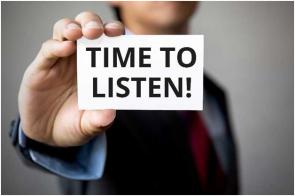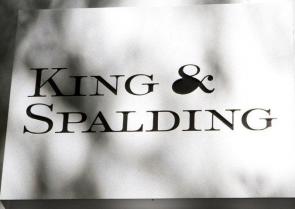Mastering the art of communication is vital for attorneys seeking professional success. This comprehensive guide delves into the essential skills every attorney should possess to excel in their practice. From persuasive speaking to active listening, written communication to non-verbal cues, and negotiation to conflict resolution, we explore the critical elements that enhance an attorney's communication abilities. Discover expert tips and insights on presenting arguments effectively, engaging clients through active listening, crafting precise written messages, utilizing non-verbal communication in the courtroom, and navigating negotiations with finesse. Enhance your communication skills to become a more successful attorney.

1. Why is mastering communication skills important for attorneys?
Effective communication is essential for attorneys as it enables them to present arguments persuasively, actively listen to clients' needs, convey ideas in writing, use non-verbal cues effectively, and negotiate successfully. Mastering these skills enhances an attorney's ability to advocate for clients and achieve favorable outcomes.
2. What key elements of persuasive speaking should attorneys focus on?
Attorneys should focus on clarity and conciseness, organizing arguments logically, and developing a strong and confident speaking voice. By simplifying complex legal concepts, structuring arguments coherently, and using appropriate voice and delivery, attorneys can effectively persuade judges, juries, and other stakeholders.
3. How does active listening contribute to effective client communication?
Active listening allows attorneys to understand clients' needs, concerns, and objectives. Attorneys who actively engage with clients, show empathy, clarify, and paraphrase client statements can build stronger attorney-client relationships, ensure accurate comprehension, and provide tailored advice and solutions.
4. Why is written communication important for attorneys, and what should they focus on?
Written communication plays a crucial role in legal practice, with documents like briefs, memos, and contracts conveying important legal arguments. Attorneys should focus on clarity and brevity, mastering proper grammar and punctuation, and structuring their writing effectively to ensure their messages are understood, professional, and persuasive.
5. How does non-verbal communication impact an attorney's presence in the courtroom?
Non-verbal cues, such as body language, facial expressions, and attire, greatly influence how attorneys are perceived in the courtroom. Maintaining confident body language, displaying appropriate facial expressions, and dressing professionally contribute to an attorney's credibility and overall impact on judges, jurors, and witnesses. Effective non-verbal communication enhances an attorney's ability to connect with the audience and convey their arguments persuasively.
Effective communication is an indispensable skill for attorneys. Whether it's presenting arguments in the courtroom, negotiating with opposing counsel, or interacting with clients, the ability to articulate ideas clearly and persuasively can make or break a case. In this article, we will explore the essential communication skills that every attorney should possess and how mastering these skills can enhance their professional success.
The Power of Persuasive Speaking
Persuasive speaking is a critical skill that sets successful attorneys apart. It is the ability to convince and influence others through compelling arguments, captivating delivery, and effective use of rhetoric. Whether attorneys are presenting their case before a judge, addressing a jury, or negotiating with opposing counsel, persuasive speaking can significantly impact the outcome of legal proceedings. Here, we delve deeper into the key elements that contribute to mastering the art of persuasive speaking.a. Clarity and Conciseness
One of the fundamental aspects of persuasive speaking is the ability to convey complex legal concepts in a clear and concise manner. Attorneys often deal with intricate legal principles and statutes that may be difficult for laypeople to comprehend. Therefore, it is crucial for attorneys to translate and simplify legal jargon into plain language that the audience can understand.Clear communication involves coherently organizing thoughts, presenting arguments logically, and avoiding unnecessary complexity. Attorneys should strive to eliminate ambiguities and use simple yet impactful language to convey their points effectively. By distilling complex legal concepts into digestible information, attorneys can enhance their persuasiveness and ensure that their arguments resonate with judges, juries, and other stakeholders.
b. Organization and Structure
In persuasive speaking, effective organization and structure are key. Attorneys should adopt a strategic approach to presenting their arguments, employing a logical framework guiding the audience through their reasoning. A well-structured argument is not only easier to follow but also more persuasive.To create a compelling structure, attorneys should begin by outlining their key points and supporting evidence. They should consider the best order in which to present their arguments, ensuring that each point builds upon the previous one, leading to a powerful conclusion. By organizing their thoughts and evidence systematically, attorneys can enhance the coherence and impact of their persuasive speaking.
Additionally, attorneys should be prepared to address counterarguments. Anticipating potential objections and effectively refuting them can strengthen an attorney's position. By acknowledging opposing viewpoints and providing well-reasoned rebuttals, attorneys demonstrate their command of the subject matter and further bolster their persuasive speaking.
c. Voice and Delivery
Voice and delivery play a crucial role in persuasive speaking. Attorneys should cultivate a strong and confident speaking voice that conveys authority and credibility. A commanding voice captures the attention of the audience and instills confidence in the attorney's arguments.To improve vocal delivery, attorneys can focus on aspects such as volume, tone, and pacing. They should project their voice clearly and audibly, ensuring that everyone in the courtroom or negotiation room can hear their words. Attorneys should also pay attention to their tone, modulating it appropriately to match the context and convey their intended message effectively.
Moreover, the pace at which attorneys speak can significantly impact their persuasive speaking. Speaking slowly may cause the audience to miss important points, while speaking too slowly can lead to disengagement. Striking the right balance and varying the pace throughout the presentation can help attorneys maintain the audience's interest and emphasize key arguments.
Alongside vocal delivery, attorneys should be mindful of their non-verbal cues. Body language, facial expressions, and gestures can enhance or detract from an attorney's persuasive speech. Maintaining eye contact with the audience, using appropriate hand gestures to emphasize key points, and displaying an open and confident body posture can contribute to a more persuasive delivery.
By mastering the art of persuasive speaking, attorneys can confidently present their arguments, engage their audience effectively, and increase their chances of achieving their desired outcomes. Continuous practice, feedback, and refinement of these skills will enable attorneys to become powerful advocates in the courtroom and in various negotiation settings.
Active Listening for Effective Client Communication
Active listening is a crucial skill for attorneys when it comes to effective client communication. Building a strong attorney-client relationship is based on understanding the client's needs, concerns, and objectives. Active listening goes beyond simply hearing what the client says; it involves actively engaging with the client, showing empathy, and ensuring clear and accurate comprehension. Let's explore the key aspects of active listening that attorneys should focus on to enhance their client communication.-
Attention and Presence
When engaging in client communication, attorneys should maintain eye contact with the client. Eye contact conveys interest and attentiveness, making the client feel that their concerns are being genuinely acknowledged. Additionally, attorneys should refrain from multitasking or interrupting the client, as these behaviors can hinder effective active listening.
-
Clarification and Paraphrasing
Paraphrasing is another essential technique that attorneys can employ during client communication. By summarizing the client's statements and reflecting them back, attorneys demonstrate that they have understood the client's message accurately. Paraphrasing also provides an opportunity for the client to clarify or provide additional information, fostering a clearer and more comprehensive understanding between the attorney and the client.
-
Empathy and Emotional Intelligence
Attorneys can demonstrate empathy through verbal and non-verbal cues. Verbal cues include using phrases such as "I understand," "That must be challenging," or "I can see why you feel that way." Non-verbal cues, such as maintaining an open and attentive posture, nodding to indicate understanding, and using appropriate facial expressions, can also convey empathy.
Emotional intelligence plays a vital role in active listening, enabling attorneys to gauge and respond to the client's emotional state. By understanding and managing their emotions, attorneys can create a safe and supportive environment for clients to express themselves fully. This fosters trust, strengthens the attorney-client relationship, and facilitates effective communication.
By actively listening to their clients, attorneys gain valuable insights into their legal needs and can provide tailored advice and solutions. Active listening demonstrates the attorney's commitment to the client's interests, increases client satisfaction, and ultimately leads to more successful outcomes. Attorneys who consistently practice active listening will strengthen client relationships and enhance their effectiveness as legal professionals.
See Related Articles:
- These 8 Tips Will Make New Attorneys More Effective Communicators
- How to Find Your Ideal Practice Area
- Assertive Communication Gets Better Results
Written Communication: Craft Your Message with Precision
In addition to oral communication skills, attorneys must excel in written communication to convey their ideas effectively. Written documents such as briefs, memos, contracts, and emails play a significant role in legal practice. Mastering the art of written communication allows attorneys to present their arguments clearly, persuasively, and professionally. Here are essential skills for attorneys to enhance their written communication:1. Clarity and Brevity
Written legal documents should be clear and concise to ensure that they are easily understandable by their intended audience. Attorneys should strive to eliminate unnecessary complexity and simplify their language without sacrificing accuracy. Using plain language instead of excessive legalese helps readers grasp the intended message quickly and effectively.Attorneys should consider the perspective of their audience when crafting written documents. They should anticipate the readers' level of legal knowledge and adjust their writing style accordingly. Explaining complex legal concepts in simple terms, using clear and straightforward sentences, and avoiding excessive use of jargon contribute to the overall clarity of the message.
2. Grammar and Punctuation
Mastering proper grammar and punctuation is crucial in legal writing. Attorneys should pay close attention to grammar rules, sentence structure, and punctuation marks to maintain professionalism and credibility. Grammatical errors can undermine an attorney's message and may create confusion or misinterpretation.To ensure accuracy and clarity, attorneys should proofread their written documents carefully. They can also use grammar and spell-checking tools to catch any overlooked errors. Proper grammar and punctuation enhance the document's readability and reflect the attorney's attention to detail and professionalism.
3. Structure and Organization
Well-structured and organized written communication is essential for the effective delivery of legal arguments. Attorneys should provide a clear and logical flow to their written documents, making it easier for readers to navigate through the information.Attorneys should start by outlining the key points they want to convey and then organize the supporting arguments, evidence, and legal precedents in a coherent manner. The use of headings, subheadings, and bullet points can help break down complex information into digestible sections, allowing readers to grasp the main ideas more efficiently.
Furthermore, attorneys should be mindful of the document's overall structure. Opening with a concise and persuasive introduction that outlines the purpose and main arguments sets the tone for the document. Subsequent paragraphs should build upon each other, providing a well-structured progression of ideas. Finally, attorneys should conclude with a strong summary that reinforces their main points and leaves a lasting impression.
By crafting written communication precisely, attorneys ensure that their messages are communicated effectively and have a lasting impact. Clear and concise writing, attention to grammar and punctuation, and thoughtful organization contribute to the professionalism and persuasiveness of legal documents. Attorneys who master the art of written communication enhance their ability to advocate for their clients, persuade judges, and negotiate effectively.
Communication is only one piece of the puzzle. Learn how it combines with advocacy, ethics, and career development in Becoming a Top-Rated Attorney: Essential Steps and Skills.
Non-Verbal Communication in the Courtroom
In the courtroom, non-verbal communication plays a significant role in how attorneys perceive and receive their messages. Non-verbal cues, such as body language, facial expressions, and overall demeanor, can greatly influence an attorney's communication's credibility, confidence, and overall impact. Attorneys must pay attention to their non-verbal communication to effectively convey their arguments and connect with judges, jurors, and witnesses. Here are key aspects of non-verbal communication that attorneys should consider in the courtroom:a. Body Language
Body language is powerful for conveying confidence, credibility, and professionalism. Attorneys should maintain an upright posture, standing or sitting tall, which portrays confidence and authority. Slouching or slumping can convey a lack of confidence or engagement.Attorneys should be mindful of their gestures during courtroom proceedings. Appropriate hand movements and gestures can emphasize key points and engage the audience, while excessive or distracting gestures can undermine the message. By using purposeful and controlled gestures, attorneys can enhance their persuasive communication.
Additionally, attorneys should consider their overall body position and movements. Facing the judge or jury when speaking, maintaining an open stance, and avoiding crossing arms or legs can contribute to an attorney's perceived openness and sincerity. These non-verbal cues can enhance the attorney's connection with the audience and establish rapport.
b. Facial Expressions
Facial expressions are essential in conveying emotions, empathy, and credibility. Attorneys should be mindful of their facial expressions, as they can influence how others perceive their messages. A genuine smile can create a positive impression and foster a connection with the judge, jury, or witnesses. Nodding in agreement or displaying concern when appropriate can demonstrate attentiveness and understanding.Eye contact is particularly crucial in the courtroom. Attorneys should maintain eye contact with judges, jurors, and witnesses to establish trust and demonstrate confidence in their arguments. Avoiding excessive blinking or darting eyes can help maintain a strong presence and convey sincerity.
c. Dress and Appearance
Attorneys' dress and appearance also contribute to their non-verbal communication in the courtroom. Dressing professionally and adhering to the appropriate courtroom attire demonstrates respect for the legal process and enhances an attorney's credibility.Attorneys should be aware of the dress code and expectations of the courtroom they are appearing in. This may include wearing formal business attire, such as a suit or professional dress, to convey professionalism and seriousness.
Attention to personal grooming is also important. Neatly styled hair, well-maintained grooming, and appropriate accessories contribute to an attorney's overall professional appearance. By presenting themselves well, attorneys project an image of competence and respect for the courtroom proceedings.
By effectively understanding and utilizing non-verbal communication, attorneys can enhance their persuasive abilities in the courtroom. Body language, facial expressions, and appropriate attire contribute to an attorney's perceived credibility, confidence, and professionalism. Attorneys who master the art of non-verbal communication can establish stronger connections with judges, jurors, and witnesses, increasing their arguments' impact.
Negotiation and Conflict Resolution
Effective communication skills are crucial during negotiations and conflict resolution inside and outside the courtroom. Attorneys who can navigate complex negotiations with opposing counsel and find mutually acceptable resolutions are highly valued. Here are essential skills for attorneys to excel in negotiation and conflict resolution:1. Active Listening and Questioning: Understanding the opposing party's concerns and interests requires active listening and strategic questioning. By uncovering the underlying motivations, attorneys can find common ground and propose creative solutions.
2. Problem-Solving and Compromise: Attorneys should be skilled problem solvers, capable of identifying and addressing the underlying issues in a dispute. By finding areas of compromise, they can negotiate agreements that satisfy both parties' interests.
3. Persuasion and Diplomacy: Diplomacy is key to effective negotiation, as it involves persuading others without creating unnecessary conflicts. Attorneys should maintain a respectful tone, avoid personal attacks, and focus on the merits of their arguments.



